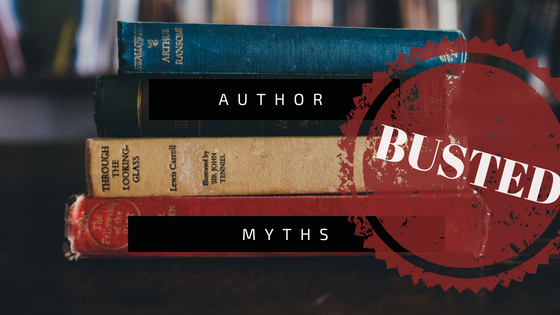
It was sweet how many non-writers I talked to called me a “famous author” after hearing about my award win, which is what sparked this blog post. If anyone was ever curious what being an author is all about, hopefully this might answer some of your questions. For those of you who do write, I bet you can identify with some of this! Let’s get to mythbusting!
MYTH 1: Awards make you rich and famous.
FACT: Probably not. What awards do is give you clout with readers and potential collaborators. I just heard a great explanation of this on The Book Marketing Show podcast. In my experience, if you’re present to receive your award, you may find yourself in the same room with some influential people. Then you just have to know how to approach them, which I talked about how not to do in my last post. If you’re looking to find an agent, having an award to list as the first line of your query can only help you.
MYTH 2: Self-publishing isn’t as legit as traditional.
FACT: I understand how this myth came to be, and I can’t blame people for thinking this. With self-publishing, it IS possible to throw up any old thing on Amazon. But since its inception, self-publishing has gotten a lot more competitive, and quality matters. Not only that, if you know where to look, you’ll find stories of indie authors all over the place who’ve been able to leave their day jobs. It’s just a matter of how you define success. At this point, self-publishing is not a last resort for people. It’s an entrepreneurial choice. If you want an agent and a traditional publishing deal, I will root for you every step of the way! I promise! For me, I’m doing this right now.
MYTH 3: Published authors are rich.
FACT: See above myths.
MYTH 4: All writers are poor.
FACT: See above myths. Many established “authorpreneurs” may also tell you that it couldn’t hurt to diversify your offerings. To give credit where its due, I’ve heard this most recently from Joanna Penn and J. Thorn. Don’t put your eggs in one basket, etc. Find something else you’re good at and offer that as a service, too, because sales are not going to be consistent every month, even if you are raking them in. Or, you know? Don’t quit your day job. There’s no shame in that. I personally like my day job.
MYTH 5: Authors have more time than other people. “I always wanted to write a book, but…”
FACT: Lulz. We all could be doing something else with our time. I admit, I consider myself lazy when it comes to writing. Here’s what I SHOULD be doing: setting my alarm for 4:30 every morning and putting in an hour of work before I hop into the shower. Here’s what I actually do: write occasionally on nights and weekends. You’re never going to find the time. Netflix will win every dang time. You have to make the time. And again, I need to take my own advice too if I ever want to publish faster.
MYTH 6: Indie publishers do EVERYTHING. Alternatively, traditionally published authors just get to write while the publisher takes care of the rest.
FACT: If you’re doing it right, the first point is definitely false. I can’t speak to the second point, but I’ve heard that publishers expect their authors to do much of their own marketing these days. As far as indies go, it’s likely you’re not good at EVERYTHING. At the very least, you’ll need someone to proofread your work. Trust me, I’m an editor (once an editor, always an editor). Most people will also hire professional editors and cover designers. Other things can also be outsourced, like formatting and book descriptions. The goal for me was always to put out a product indistinguishable from the big publishing houses’ products. I don’t know that I’m quite there yet, but that’s my goal.
What other author myths have you heard?
1 thought on “Six Common Author Myths Busted”
David Michael Williams
Great post…and here’s another myth:
“Anyone can write and publish a book.”
While it’s technically true that it’s easier to become a published author these days (thanks to self-publishing), just because someone CAN do something, it doesn’t mean they SHOULD. One of the reasons self-published authors get such a bad rap is because there are so many dabblers uploading their early drafts to Amazon…without being elevated by a professional editor and/or proofer…and with a cobbled-together, cringe-worthy cover.
Being an indie author means you must wear many hats. To write well, to publish well, and to market well means you have to invest a lot of resources: time, money, and maybe a little mental health. I like to say that publishing is easy; it’s the selling that proves insurmountable to many starry-eyed amateurs. I suppose it’s the difference between doing something just to say you’ve done it and working to be a success at it.
Which goes back to your earlier point about making your product indistinguishable from the pros’ offerings…
Comments are closed.